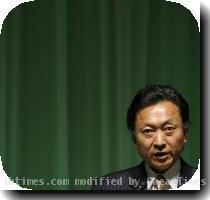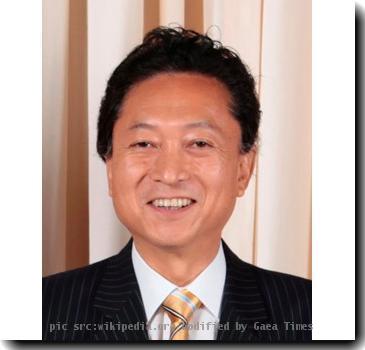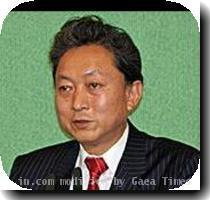Japanese leader faces growing calls to resign over handling of US base issue, falling support
By Mari Yamaguchi, APTuesday, June 1, 2010
Japanese leader faces mounting calls to step down
TOKYO — Japan’s embattled prime minister faced growing pressure Tuesday from within his own party to resign ahead of July elections over his broken campaign promise to move a U.S. Marine base off the southern island of Okinawa.
Prime Minister Yukio Hatoyama’s approval ratings have plummeted as he backtracked on the vow to move Marine Air Station Futenma off the southern island, reinforcing his public image as an indecisive leader after only eight months in office.
Many analysts say he may well step down ahead of upper house elections, likely to be held in mid-July — or perhaps right after the elections if his party, the Democratic Party of Japan, does poorly. If he does resign soon, he will be the fourth Japanese prime minister to do so in four years.
Hatoyama has insisted he will stay on, but his comments Tuesday seemed less forceful.
“We will stand up against this national crisis,” Hatoyama said, apparently referring to the difficult situation facing the government. We will do “what’s best” for the Japanese people, he said.
On Tuesday evening, Hatoyama met with senior party executives Ichiro Ozawa and Azuma Koshiishi in Tokyo’s parliament building to discuss political strategy ahead of the elections.
They were swamped by reporters after the meeting but declined to comment on what had been discussed. Major newspapers and broadcasters speculated that the main topic had been whether — or when — Hatoyama might resign.
His government came to power amid high hopes last September after his Democratic Party of Japan soundly defeated the long-ruling conservatives in lower house elections.
But his public image has tumbled amid a political funding scandal and perceived inconsistency and indecision, particularly on his reversal on Futenma. He now says he’ll go along with the 2006 agreement to move the base to a northern part of the island, infuriating residents who want it off Okinawa entirely.
Okinawa alone houses more than half of the 47,000 U.S. troops in Japan, stationed under a bilateral security alliance.
Hatoyama’s three-way coalition was cut to two members over the weekend when a junior partner, the Social Democrats, withdrew after the prime minister expelled its leader Mizuho Fukushima, who rejected the Futenma decision, from the Cabinet.
The DPJ and a remaining coalition partner still hold a majority in both houses of the Diet, or parliament — though just barely in the less powerful upper house.
Fukushima’s dismissal enhanced her public standing as a politician who stood up for her convictions and reinforced perceptions of Hatoyama’s wishy-washiness.
The largest Japanese newspaper, the Yomiuri, citing its own survey conducted on Monday, said nine out of 43 upper house lawmakers from Hatoyama’s party seeking re-election in July said Hatoyama’s resignation ahead of the poll is unavoidable, while 13 others urged him to make his own decision.
Prior to his meeting with the prime minister, Koshiishi met with upper house Democrats on Tuesday, promising to come up with measures that would address their election worries within the next couple of days.
Some analaysts said Hatoyama might not necessarily resign. “The pressure is mounting, but at this point, I think it’s more likely that he’ll survive for now.” said Koichi Nakano, professor of international politics at Sophia University in Tokyo.
Some Cabinet ministers defended Hatoyama.
Finance Minister Naoto Kan, a man some have speculated might become the next prime minister, said he has supported Hatoyama’s leadership and “that has not changed.”
Transport Minister Seiji Maehara said he was against frequent leadership change even though Hatoyama should take responsibility for his recent political bungling by staying on to do a better job.
Public support for the current government has slid to 17 percent, down 4 percentage points from a previous poll just two weeks ago, according to the latest survey by major daily Asahi, published Monday. Disapproval rating jumped to 70 percent from 64 percent.
In a weekend telephone survey of 1,033 voter households, Kyodo News agency found that more than half said Hatoyama should step down, while 44 percent disagreed. Kyodo did not give a margin of error, but a poll of that size would normally have a 5 percentage point sampling error.
Tags: Asia, East Asia, Japan, Parliamentary Elections, Political Approval Ratings, Public Opinion, Tokyo, Yukio Hatoyama


